Supervisors vote to work with state on county’s reopening plan; Remove target dates for phases
The Riverside County Board of Supervisors voted 4-1 to work with the state on the county's reopening plan, which would continue to adhere to state guidelines and requires working with the California Department of Public Health on reopening some venues.
Supervisors voted to direct the county staff to work with the state and the Department of Public Health for further clarity on hotel meetings and wedding receptions. Supervisors also removed target dates for the phases of Supervisor Jeff Hewitt's reopening plan, of which the county will work with the state.
"We're not fully open today," said Supervisor Karen Spiegel. "We're still going right along with the state (on health safety measures).''
The key difference between the county plan and Gov. Gavin Newsom's
color-coded tiered system is that the county will no longer recognize a specific formula that qualifies a business sector to reopen. Instead, the board has authorized county CEO George Johnson, in consultation with Riverside University Health System staff, to make rolling interpretations of when entities are clear to return to modified operations.
The CEO could opt to continue to view the state metrics as fundamental
to loosening regulations, or not.
Jeffries noted that the county has taken a light touch on enforcing the state's mandates concerning business and church closures, and the supervisors' action effectively removes the county from a state enforcement role.
"Cities can (still) proceed with enforcement," Jeffries cautioned. "And businesses should know that if they don't adhere to state guidelines, an employee can complain to Cal OSHA. So businessman or woman, make your decisions.''
Both he and Spiegel pointed out that many entities need a state-issued
license to legally operate.
"If you have a state license and you're going against the state, we cannot help you,'' Spiegel said.
Hewitt, who originally proposed an accelerated plan two weeks ago, was the lone no vote on the county's plan.
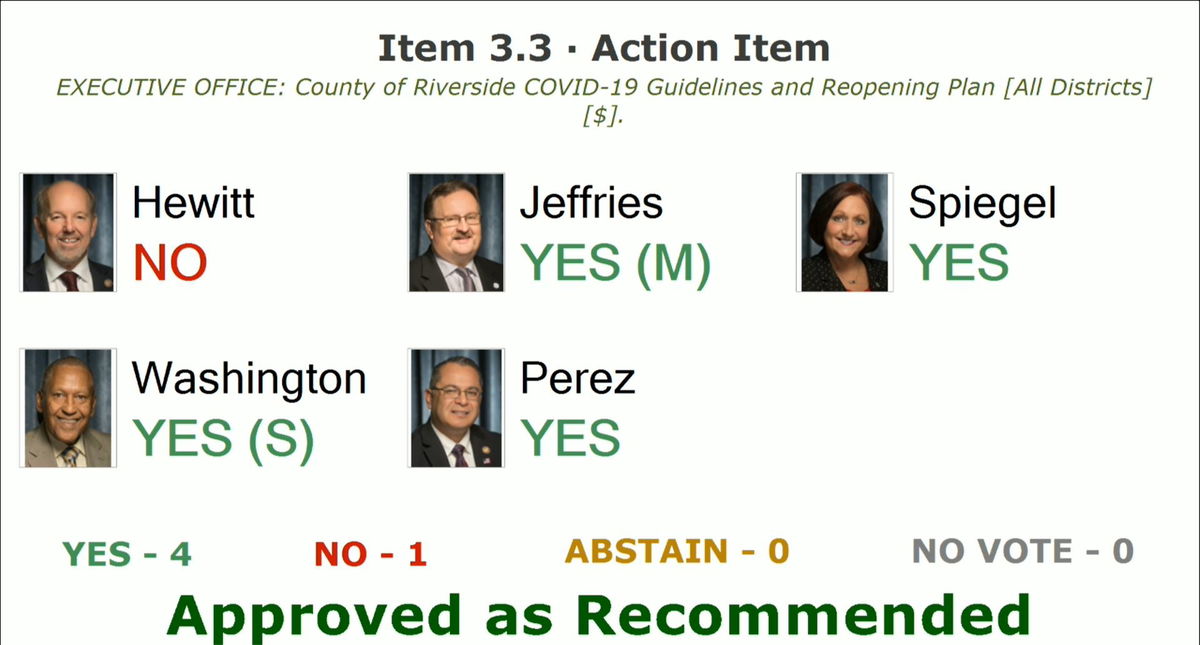
Hewitt's original plan, which mirrors the Community Action Plan that the county submitted to the state in August, would have seen Riverside County take a self-directed approach to remove restrictions and bypass the state's tiered system to mitigate coronavirus impacts.
"We don't need the state, which knows nothing about Riverside County," Hewitt said. "We can do the things we need. We have that ability. This proposal gives us the ability to (bypass the state's) one-size-fits-all approach.''
A vote on Hewitt's proposal was delayed until Oct. 6 to give the Executive Office time to evaluate the potential funding losses that might ensue if the state frowns on the county's autonomous initiative and ignores the color-coded tiered structure.
The County Executive Office staff said on during Tuesday's meeting that this change could come at a cost of 114 million in funds due from the state, including money for the Homekey homeless mitigation programs and additional federal Coronavirus Aid, Relief & Economic Security Act funding
Officials said this was a best guess projection, meaning it could be more or less or nothing at all.
Hewitt and Jeffries doubted the state would take action.
"If there's proof of a direct threat from Sacramento, I'd like to know about it," Hewitt said. "We're drowning right now. Businesses are lives and livelihoods. How much money are we losing every week?''
Jeffries said he did not see the plan "causing any rifts with anybody, any place."?
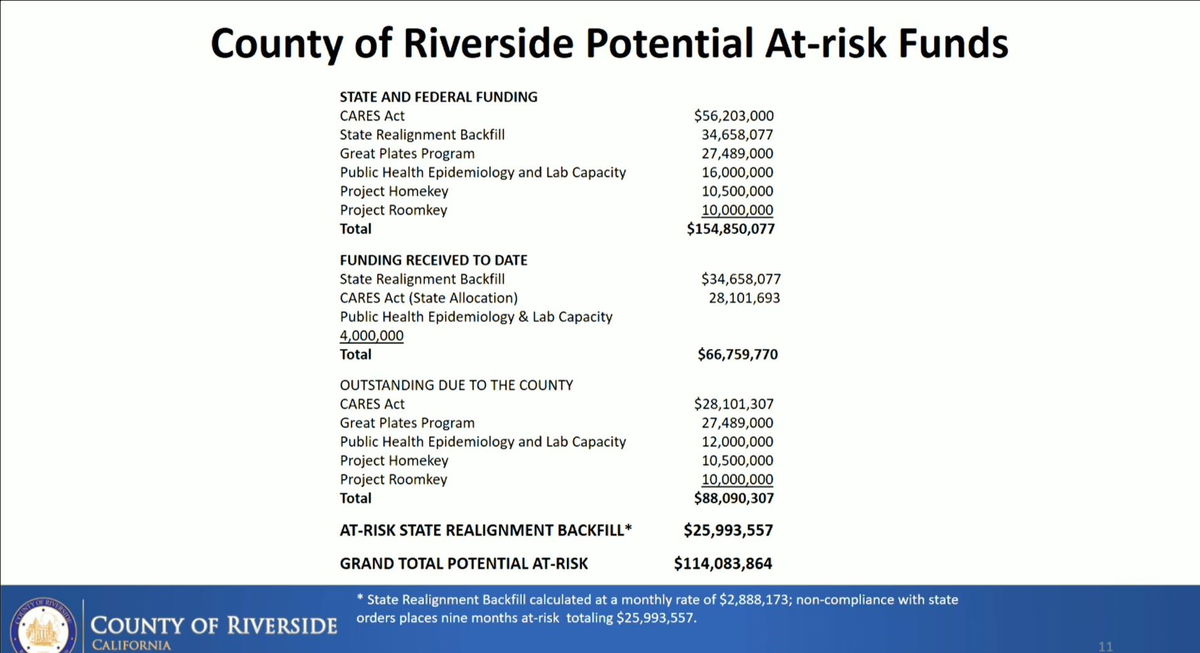
Phase I of Hewitt's plan would have started on Sept. 22, which is already in currently in place.
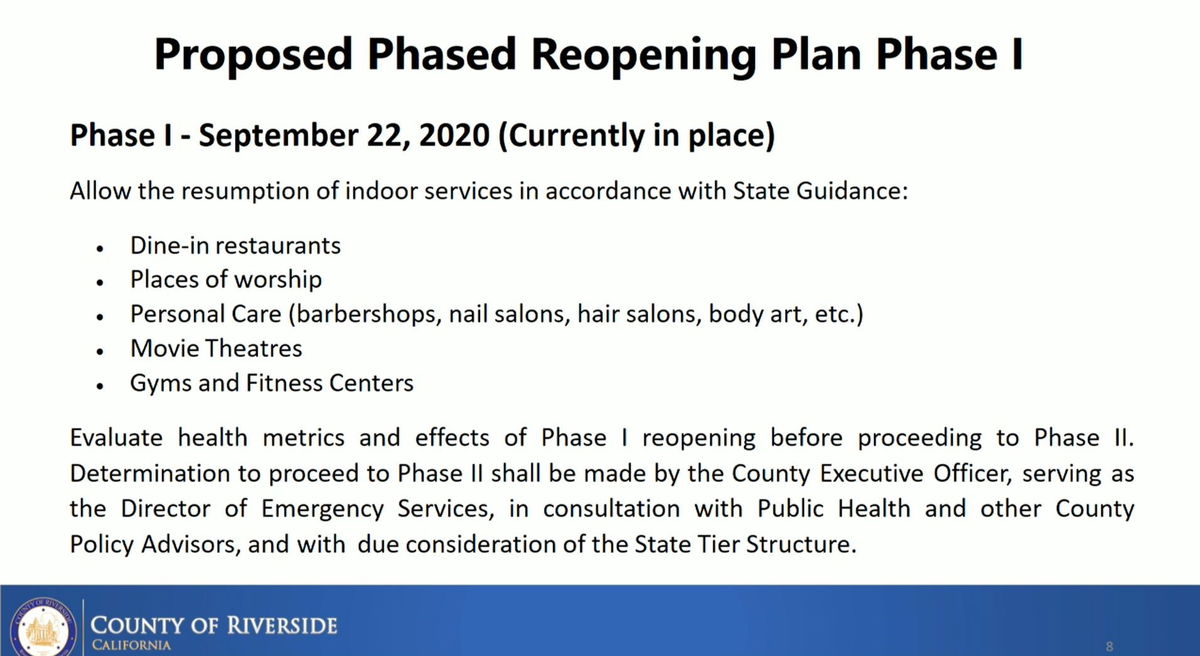
Under Phase II, which would've started on Oct. 13, limited indoor activities would be permitted for all dining establishments, cultural celebrations and weddings, but they would be capped at 25% capacity, or 100-person attendance, whichever is less.
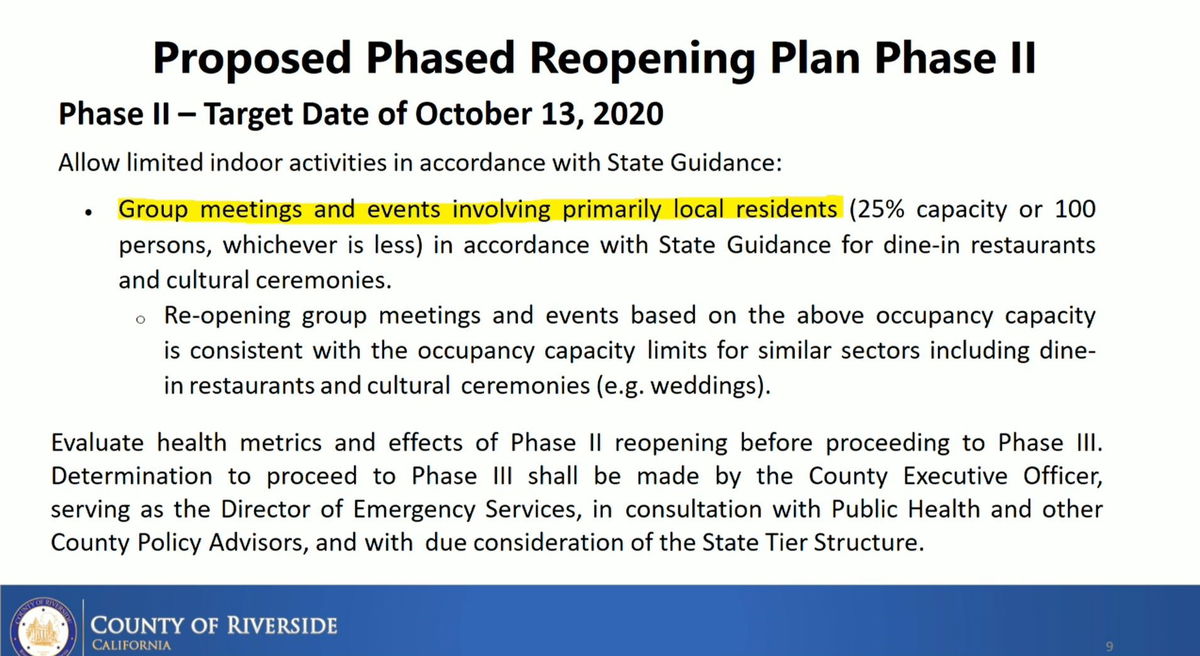
Phase III would follow on Oct. 27, with bars, breweries, wineries, “non-essential” offices and family entertainment centers permitted to operate with safety measures in place.
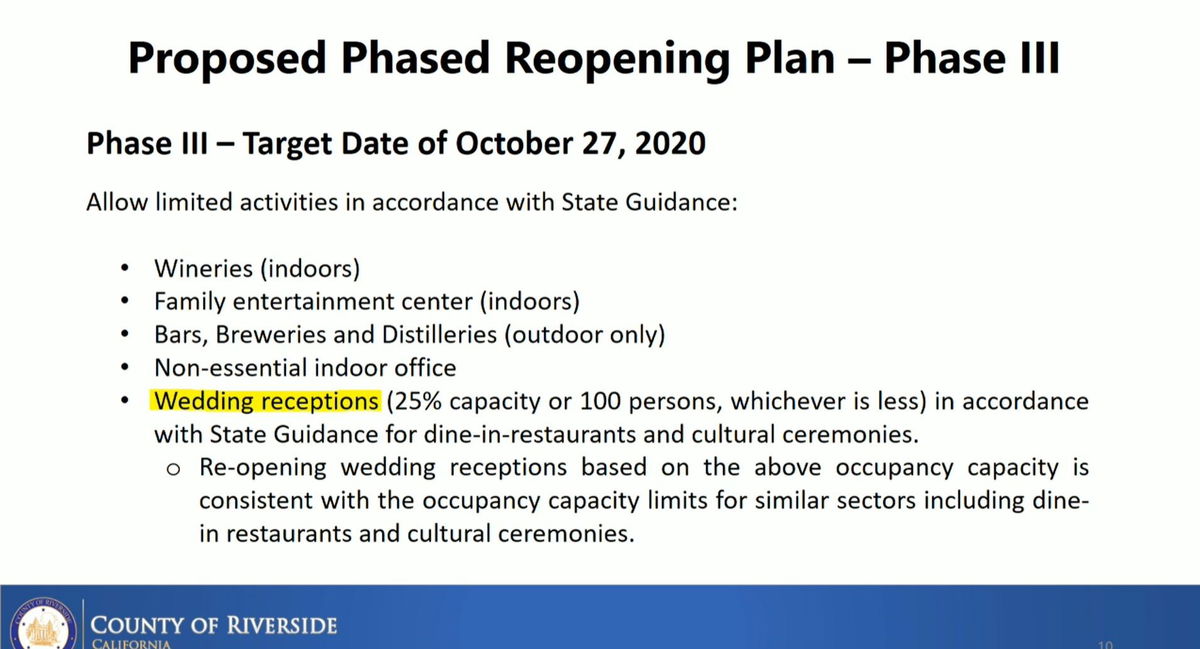
The county is now in the “red tier,” having moved out of the most restrictive “purple tier” permitting houses of worship, gyms, movie theaters, barbershops and restaurants to operate -- with limitations on capacity and other protocols that must be adhered to.
However, that could change next week, as pockets of the county are experiencing increases in COVID-19 cases, Hewitt and Jeffries voiced concern that the CDPH could recommend that the county be moved back into the most restrictive "purple tier" from the less restrictive "red tier,'' into which it was placed two weeks ago.
The re-designation would mean the threat of businesses closing down again.
The county's new plan removes the tiered structure as the pivotal decision- making tool. It will instead be left to the CEO to interpret data and the county's response. The board can also direct the CEO to take action.
"These are hard decisions," Johnson told the board. "We want our businesses to open up and people to go back to work.''
Theoretically, a countywide reopening of all private sector operations could happen any time with the Executive Office's support, but the timeline was unclear following the board vote.
Perez asked specifically for the CDPH to work with the county in ironing out criteria for convention centers and other large meeting halls for wedding receptions and cultural celebrations to reopen.
It was not immediately clear how the Executive Office will announce
the county's support for reopening venues.
The majority of speakers who addressed the board backed the county plan, with mostly union workers on the county payroll criticizing it.
"The cost of this reopening could be much greater than the benefit," Nicole Holt told the board by phone. "We can't reduce case numbers if we open sooner than recommended.''
Riverside resident Loren Dean told the board Newsom had been crafting arbitrary reopening formulas since March.
"Every time you jump through the hoop, he just adds another," Dean said. "The color-coded plan has no end in sight. You cannot trust Sacramento. Over and over again, you've been had.''
Andrea Davis said she found the nattering by government officials absurd.
"There's a sickening lack of personal responsibility in this country," she said. "People feel spoiled and entitled. Grow up. Open our
businesses so we can pay our bills."
Several people referenced successful court challenges in Michigan and Pennsylvania to executive orders on public health lockdowns and believed the same would happen in California.
"The governor's bar keeps rising," Tina Dee said. "We're seven
months into this, and it's no longer an epidemic. Protect the vulnerable, but
also protect the rest of us and open up."
